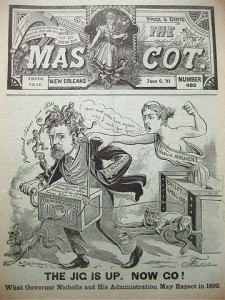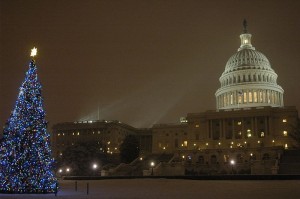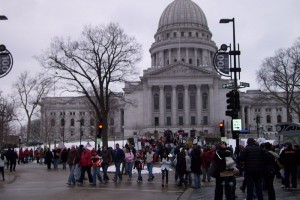Friends of Scott Walker v. GAB Changes the Recall Rules Mid-Stream
 Today, Judge J. Mac Davis ruled that the Government Accountability Board must take “affirmative steps to identify and strike duplicate, fictitious or unrecognizable signatures as it reviews the recall petitions expected to be filed against Gov. Scott Walker.” The ruling comes in the case of Friends of Scott Walker v. GAB, filed in Waukesha County Circuit Court on December 15, 2011. The complaint in the case sought a declaratory judgment from the court that the procedures of the Government Accountability Board, whereby the GAB accepted (but did not necessarily count) duplicative signatures on recall petitions, violated the United States Constitution, the Wisconsin Constitution and Wisconsin law. The complaint in the case is available here.
Today, Judge J. Mac Davis ruled that the Government Accountability Board must take “affirmative steps to identify and strike duplicate, fictitious or unrecognizable signatures as it reviews the recall petitions expected to be filed against Gov. Scott Walker.” The ruling comes in the case of Friends of Scott Walker v. GAB, filed in Waukesha County Circuit Court on December 15, 2011. The complaint in the case sought a declaratory judgment from the court that the procedures of the Government Accountability Board, whereby the GAB accepted (but did not necessarily count) duplicative signatures on recall petitions, violated the United States Constitution, the Wisconsin Constitution and Wisconsin law. The complaint in the case is available here.
The GAB responded to the lawsuit by arguing that the Wisconsin statutes provide a clearly defined procedure that allows elected officials subject to recall to instigate challenges to any signatures that appear to be duplicative, fictitious or unrecognizable. After the GAB accepts the recall petitions, there is a period of 10 days in which the signatures may be challenged by the official. It is at the challenge stage that suspect signatures should be identified and removed, according to the GAB, and not earlier when the recall petitions are accepted by the agency. The GAB also contended that there was no provision in the Wisconsin Statutes that granted the agency the authority to do what the Friends of Scott Walker asked it to do.
Judge Davis disagreed with the GAB, and earlier today he ruled that the GAB is required to take affirmative action that will have the effect of reducing the burden that the Friends of Scott Walker would otherwise face. This is because the GAB must now identify and remove suspect signatures on its own initiative.
Why is the GAB obligated to do this, when there is no statutory language that explicitly places such an obligation on the agency?


